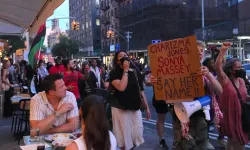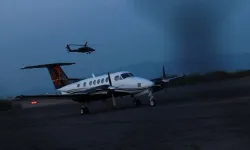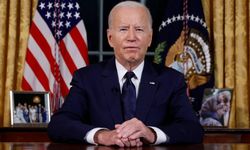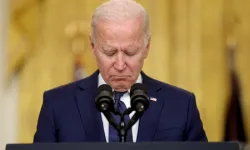Victor Manuel Rocha, 73, was accused of secretly passing information to the Cuban government since 1981. During this period, he worked for the US State Department and the National Security Council.
Rocha served as US Ambassador to Bolivia from 1999 to 2002.
Rocha changed his initial plea of not guilty in court in Miami, Florida, on Thursday.
An April 12 hearing will determine his sentence. This means that one of the most high-profile espionage cases between Cuba and the United States will be decided unexpectedly quickly.
According to the US-based Miami Herald newspaper, Thursday's hearing was supposed to discuss how to handle classified documents related to the case. But instead, it was announced that Rocha had settled with the court.
Rocha is accused of spying for foreign countries, committing money transfer fraud and making false statements to obtain a US passport.
Evidence gathered by investigators includes secret recordings in which Rocha admitted to decades of working for Cuba, referred to former Cuban leader Fidel Castro as "Commander" and called the United States "the enemy."
Rocha and his lawyers now appear to have decided that pleading guilty was the wisest option.
James Olson, the CIA's former head of counterintelligence, told the BBC last month that the case showed how Cuba's intelligence services had outsmarted the US government.
"One of the reasons I have a personal grudge against the Cuban intelligence service is that they have been very successful in operations against us," Olson said.
Olson said he expected Rocha to be sentenced to life in prison. The US and Cuba have had a strained relationship since Fidel Castro overthrew the US-backed government 60 years ago.
The US imposed a trade embargo on Cuba in the 1960s. Former US President Barack Obama and former Cuban President Raul Castro took steps to normalize relations in 2015, but former US President Donald Trump later backed away from most of them.
Born in Colombia, Rocha grew up in New York City and studied at some of the country's leading universities, including Yale, Harvard and Georgetown.
According to prosecutors, he served as US Ambassador to Bolivia from 1999 to 2002 and held various positions in the government, including the National Security Council, for 25 years. In addition to Bolivia, he held posts in Argentina, Honduras, Mexico and the Dominican Republic.After leaving the State Department, he worked as a special advisor to the US Southern Command, the part of the US military responsible for Cuba.
In November 2022, an FBI agent, claiming to be a representative of the Cuban Intelligence Services, contacted Rocha via WhatsApp "to deliver a message from his friends in Havana," the indictment said.Rocha agreed to meet with this person several times, including once at a food court in a shopping center, because "no one was likely to see him there," according to court documents.
During the three meetings with the undercover FBI agent, Rocha began to provide details about his time working as an agent for the Cuban government, according to the indictment.Rocha allegedly used the term "we" when referring to Cuba and himself.When an FBI agent posing as a spy working for Cuba asked him, "Are you still with us?" Rocha said he was "angry" that his loyalty was being questioned.
"It's like questioning my manhood," he said.













